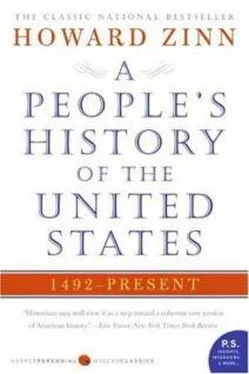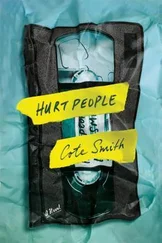Howard Zinn - A People
Здесь есть возможность читать онлайн «Howard Zinn - A People» весь текст электронной книги совершенно бесплатно (целиком полную версию без сокращений). В некоторых случаях можно слушать аудио, скачать через торрент в формате fb2 и присутствует краткое содержание. Издательство: Harper-Collins, Жанр: Фэнтези, на английском языке. Описание произведения, (предисловие) а так же отзывы посетителей доступны на портале библиотеки ЛибКат.
- Название:A People
- Автор:
- Издательство:Harper-Collins
- Жанр:
- Год:неизвестен
- ISBN:нет данных
- Рейтинг книги:4 / 5. Голосов: 1
-
Избранное:Добавить в избранное
- Отзывы:
-
Ваша оценка:
- 80
- 1
- 2
- 3
- 4
- 5
A People: краткое содержание, описание и аннотация
Предлагаем к чтению аннотацию, описание, краткое содержание или предисловие (зависит от того, что написал сам автор книги «A People»). Если вы не нашли необходимую информацию о книге — напишите в комментариях, мы постараемся отыскать её.
A People — читать онлайн бесплатно полную книгу (весь текст) целиком
Ниже представлен текст книги, разбитый по страницам. Система сохранения места последней прочитанной страницы, позволяет с удобством читать онлайн бесплатно книгу «A People», без необходимости каждый раз заново искать на чём Вы остановились. Поставьте закладку, и сможете в любой момент перейти на страницу, на которой закончили чтение.
Интервал:
Закладка:
Here was the traditional device by which those in charge of any social order mobilize and discipline a recalcitrant population-offering the adventure and rewards of military service to get poor people to fight for a cause they may not see clearly as their own. A wounded American lieutenant at Bunker Hill, interviewed by Peter Oliver, a Tory (who admittedly might have been looking for such a response), told how he had joined the rebel forces:
I was a Shoemaker, amp; got my living by my Labor. When this Rebellion came on, I saw some of my Neighbors got into Commission, who were no better than myself. I was very ambitious, amp; did not like to see those Men above me. T was asked to enlist, as a private Soldier… I offered to enlist upon having a Lieutenants Commission; which was granted. I imagined my self now in a way of Promotion: if I was killed in Battle, there would be an end of me, but if any Captain was killed, I should rise in Rank, amp; should still have a Chance to rise higher. These Sir! were the only Motives of my entering into the Service; for as to the Dispute between Great Britain amp; the Colonies, I know nothing of it…
John Shy investigated the subsequent experience of that Bunker Hill lieutenant. He was William Scott, of Peterborough, New Hampshire, and after a year as prisoner of the British he escaped, made his way back to the American army, fought in battles in New York, was captured again by the British, and escaped again by swimming the Hudson River one night with his sword tied around his neck and his watch pinned to his hat. He returned to New Hampshire, recruited a company of his own, including his two eldest sons, and fought in various battles, until his health gave way. He watched his eldest son the of camp fever after six years of service. He had sold his farm in Peterborough for a note that, with inflation, became worthless. After the war, he came to public attention when he rescued eight people from drowning after their boat turned over in New York harbor. He then got a job surveying western lands with the army, but caught a fever and died in 1796.
Scott was one of many Revolutionary fighters, usually of lower military ranks, from poor and obscure backgrounds. Shy's study of the Peterborough contingent shows that the prominent and substantial citizens of the town had served only briefly in the war. Other American towns show the same pattern. As Shy puts it: "Revolutionary America may have been a middle-class society, happier and more prosperous than any other in its time, but it contained a large and growing number of fairly poor people, and many of them did much of the actual fighting and suffering between I775 and 1783: A very old story."
The military conflict itself, by dominating everything in its time, diminished other issues, made people choose sides in the one contest that was publicly important, forced people onto the side of the Revolution whose interest in Independence was not at all obvious. Ruling elites seem to have learned through the generations-consciously or not-that war makes them more secure against internal trouble.
The force of military preparation had a way of pushing neutral people into line. In Connecticut, for instance, a law was passed requiring military service of all males between sixteen and sixty, omitting certain government officials, ministers, Yale students and faculty, Negroes, Indians, and mulattos. Someone called to duty could provide a substitute or get out of it by paying 5 pounds. When eighteen men failed to show up for military duty they were jailed and, in order to be released, had to pledge to fight in the war. Shy says: "The mechanism of their political conversion was the militia." What looks like the democratization of the military forces in modern times shows up as something different: a way of forcing large numbers of reluctant people to associate themselves with the national cause, and by the end of the process believe in it.
Here, in the war for liberty, was conscription, as usual, cognizant of wealth. With the impressment riots against the British still remembered, impressment of seamen by the American navy was taking place by 1779. A Pennsylvania official said: "We cannot help observing how similar this Conduct is to that of the British Officers during our Subjection to Great Britain and are persuaded it will have the same unhappy effects viz. an estrangement of the Affections of the People from… Authority… which by an easy Progression will proceed to open Opposition… and bloodshed."
Watching the new, tight discipline of Washington 's army, a chaplain in. Concord, Massachusetts, wrote: "New lords, new laws. The strictest government is taking place and great distinction is made between officers amp; men. Everyone is made to know his place amp; keep it, or be immediately tied up, and receive not one but 30 or 40 lashes."
The Americans lost the first battles of the war: Bunker Hill, Brooklyn Heights, Harlem Heights, the Deep South; they won small battles at Trenton and Princeton, and then in a turning point, a big battle at Saratoga, New York, in 1777. Washington 's frozen army hung on at Valley Forge, Pennsylvania, while Benjamin Franklin negotiated an alliance with the French monarchy, which was anxious for revenge on England. The war turned to the South, where the British won victory after victory, until the Americans, aided by a large French army, with the French navy blocking off the British from supplies and reinforcements, won the final victory of the war at Yorktown, Virginia, in 1781.
Through all this, the suppressed conflicts between rich and poor among the Americans kept reappearing. In the midst of the war, in Philadelphia, which Eric Foner describes as "a time of immense profits for some colonists and terrible hardships for others," the inflation (prices rose in one month that year by 45 percent) led to agitation and calls for action. One Philadelphia newspaper carried a reminder that in Europe "the People have always done themselves justice when the scarcity of bread has arisen from the avarice of forestallers. They have broken open magazines- appropriated stores to their own use without paying for them-and in some instances have hung up the culprits who created their distress."
In May of 1779, the First Company of Philadelphia Artillery petitioned the Assembly about the troubles of "the midling and poor" and threatened violence against "those who are avariciously intent upon amassing wealth by the destruction of the more virtuous part of the community." That same month, there was a mass meeting, an extralegal gathering, which called for price reductions and initiated an investigation of Robert Morris, a rich Philadelphian who was accused of holding food from the market. In October came the " Fort Wilson riot," in which a militia group marched into the city and to the house of James Wilson, a wealthy lawyer and Revolutionary official who had opposed price controls and the democratic constitution adopted in Pennsylvania in 1776. The militia were driven away by a "silk stocking brigade" of well-off Philadelphia citizens.
It seemed that the majority of white colonists, who had a bit of land, or no property at all, were still better off than slaves or indentured servants or Indians, and could be wooed into the coalition of the Revolution. But when the sacrifices of war became more bitter, the privileges and safety of the rich became harder to accept. About 10 percent of the white population (an estimate of Jackson Main in The Social Structure of Revolutionary America ), large landholders and merchants, held 1,000 pounds or more in personal property and 1,000 pounds in land, at the least, and these men owned nearly half the wealth of the country and held as slaves one-seventh of the country's people.
The Continental Congress, which governed the colonies through the war, was dominated by rich men, linked together in factions and compacts by business and family connections. These links connected North and South, East and West. For instance, Richard Henry Lee of Virginia was connected with the Adamses of Massachusetts and the Shippens of Pennsylvania. Delegates from middle and southern colonies were connected with Robert Morris of Pennsylvania through commerce and land speculation. Morris was superintendent of finance, and his assistant was Gouverneur Morris.
Читать дальшеИнтервал:
Закладка:
Похожие книги на «A People»
Представляем Вашему вниманию похожие книги на «A People» списком для выбора. Мы отобрали схожую по названию и смыслу литературу в надежде предоставить читателям больше вариантов отыскать новые, интересные, ещё непрочитанные произведения.
Обсуждение, отзывы о книге «A People» и просто собственные мнения читателей. Оставьте ваши комментарии, напишите, что Вы думаете о произведении, его смысле или главных героях. Укажите что конкретно понравилось, а что нет, и почему Вы так считаете.












